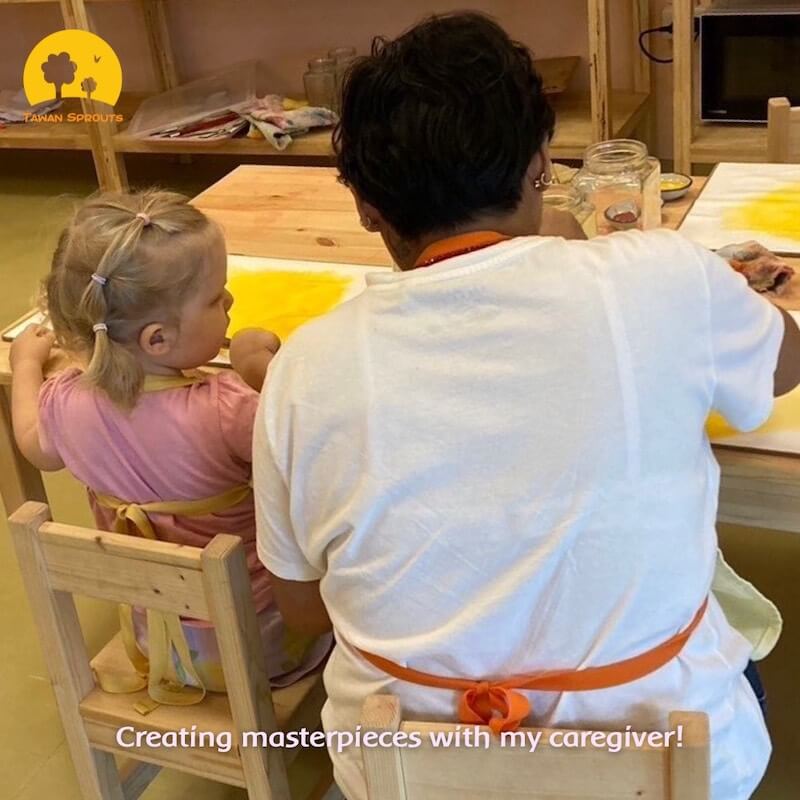Years ago, mums and dads believed that if they could just keep their child healthy and safe, they had mastered parenting. Today, standards of parenting have risen dramatically, with mums and dads concerned with a great deal more than just having their child make it to adulthood all in one piece. Even so, Dr. Hassan Alzein of Alzein Pediatrics in Evergreen Park and Oak Lawn, Illinois, says that keeping children healthy and safe is still the main priority for parents.
“Your child is bound to contract colds, strep throat and gastroenteritis throughout the years,” says Dr. Alzein. “Some illnesses are just unavoidable. There are, however, five basic tactics parents can implement to minimize the risk of illness or, when a child does contract an illness, make the symptoms and complications less severe.” Here are his suggestions:
1. Bring Your Child For Regular Well-Child Visits/Immunizations
Dr. Alzein understands that if your child appears to be healthy and thriving, it’s easy to delay or skip recommended well-child visits. However, these visits are vitally important. “Having your pediatrician examine and evaluate your child when they are healthy will help catch any developmental delays, early warning signs of illness, or chronic health conditions.”
“The American Academy of Pediatrics has outlined well visits from birth to 21 years of age. Your pediatrician’s office will help you make and keep these recommended appointments,” says Dr. Alzein.
However, if you have concerns about your child, their health, or their development, Dr. Alzein recommends that you message your child’s pediatrician with those concerns as soon as possible. Early diagnosis and treatment can prevent serious delays or complications.”
When you adhere to the AAP well-visit schedule, your child is also much more likely to stay current on their vaccinations. “This schedule is carefully constructed to ensure the vaccines are administered in the most effective way for a child’s developing immune system. Vaccinations are safe and proven to save our children’s lives, protecting against life-threatening and life-altering illnesses, Staying current on the vaccination schedule is the best way to prevent illness,” says Dr. Alzein.

2. Serve a Healthy Diet
“You are what you eat” is probably the most accurate way to describe how parents should think about a healthy diet for their family. Eating a balanced diet that includes fruits and vegetables at every meal, as well as protein and carbohydrates, is the best way to give the body what it needs to thrive.
“Avoid serving highly processed foods, which also helps your family avoid excess sugar and sodium. Going through a drive-through once in a great while is okay, but having fast-food frequently will cause long-term and negative health conditions for your child. Multiple research studies have shown that consuming ultra-processed food leads to unhealthy weight gain and puts children at an increased risk of heart disease and diabetes,” says Dr. Alzein.
At every meal, make sure to serve your child a vegetable and a fruit, making sure they eat that – even just a few bites – before eating any other foods, and most especially before any dessert.
Pack money-saving lunches with whole fruits such as bananas and apples. Make sure breakfasts contain protein and avoid the sugary cereals that will give kids a burst of energy, but bring a crash mid-morning, as they are not a good source of nutrition.

Dr. Alzein and team also recommend:
- Protein: chicken, seafood, beans, peas, and unsalted nuts
- Fruits: fresh, canned, frozen, or dried
- Vegetables: several times a day in a wide assortment of colors
- Grains: whole grain bread and rice, oatmeal, and popcorn
- Dairy: yogurt, cheese, cottage cheese, and milk at meals
3. Encourage Drinking Water
For most of our collective past, no one carried a water bottle around everywhere they went – often not even at sports practice in the summer. Dr. Alzein says, “We know the importance of water today. We see that more and more parents make sure children have water easily accessible and that is fantastic.”
There are plenty of physical benefits to staying hydrated. Ample water in your child’s system helps blood circulate, makes digestion easier, and helps to maintain a consistent body temperature. “There are also mental benefits to staying hydrated,” Dr. Alzein says. “Being well hydrated will help improve mood, memory, and attention span.”
Water intake should be a standard part of your child’s day, drinking more when the temperature rises or they are engaging in physical activity. Make sure your child drinks water whenever they are thirsty and encourage them to drink enough so that their urine is nearly clear. Dr. Alzein’s team says, “No child, at any age, should be drinking pop/soda or soft drinks, even the clear ones.”
4. Encourage Physical Activity
Parents are often stressed for time when working, taking care of the home, and keeping up with the kids. “We know that there are times it is easier to sit the kids in front of their favorite show or give them a tablet. While is nothing wrong with this for a time or two, sedentary behavior should not turn into a habit or last for long periods of time,” says Dr. Alzein.
Regular physical activity in childhood will ensure that physical activity is a priority as an adult. According to the CDC, this habit will:
- Strengthen bones and muscles
- Improve the cardiovascular and respiratory system
- Reduce the chances of developing type 2 diabetes
- Prevent obesity
- Decrease anxiety and depression
“Physical activity can be as simple as a family bike ride after dinner, a trip to the park in the morning, or silly obstacles, like walking like a bear or a crab indoors to get from room to room,” says Dr. Alzein. “Find what works for you and your child to get their body is moving and elevate their heart rate for an hour every day.”

5. Keep a Schedule that Prioritizes Rest
Dr. Alzein says, “We have such a “keep busy” culture, and rest is always sacrificed to accommodate hectic schedules. We’re seeing this more and more in childhood. Rest has to be a priority above other commitments. When children rest, they are giving their bodies and minds time to recover from a long day of learning and developing and also gearing up to do it all again the next day.”
Children above the age of 5 years old need an average of 9-10 hours of sleep a night. When children sleep, bodies cleanse toxins and release hormones for growth and the brain strengthens itself, which increases learning and memory. Proper sleep will also help children regulate their emotions and decrease the risk of developing depression.
“To ensure that your child is getting enough rest, teach them healthy sleep habits at an early age,” says Dr. Alzein. “Have a consistent, calm bedtime routine at the same time every night. Make sure that all screens are shut off at least an hour before bedtime. Avoid anything that contains caffeine. If your child is clocking 10 hours of sleep a night and still seems groggy during the day, call your pediatrician and make sure a physical problem isn’t preventing them from getting the rest they need.”
Check in with Your Child Regularly
A healthy lifestyle takes commitment to build, but when these healthy habits are started in childhood, kids will carry them through a healthy adulthood. “As you stack these building blocks of health with your children, make sure they are part of the building,” says Dr. Alzein. “Giving them some control over their health choices will empower them and help them learn the why behind healthy decisions.”
“Check in with your kids. Ask them how they are feeling and what they like and don’t like about their diets and exercise. Talking to your child may reveal some preferences that can easily be adjusted to help them increase their water or vegetable intake. They may be having a difficult time falling asleep from stress. Ask them to find out how to reach solutions together,” says Dr. Alzein.
Dr. Alzein also says, “Always advocate for your child. If you or your child feels something is wrong, make sure to see your pediatrician, ask all your questions and get the answers you need to improve both their physical and mental health.”













